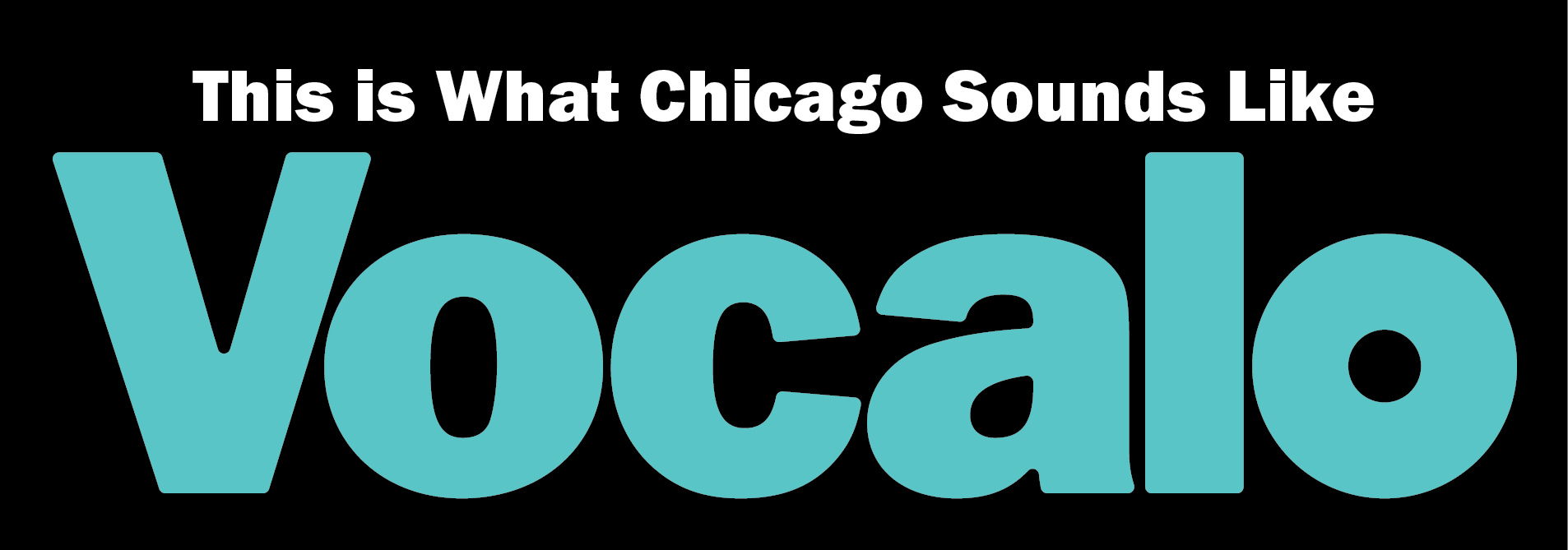Jeanine Valrie Logan Fights For Maternal Equality and Reproductive Justice
Written by Vocalo Radio on December 1, 2022
Through her work at Chicago South Side Birth Center, founder, activist and certified midwife Jeanine Valrie Logan fights for access to compassionate, individualized healthcare for mothers and infants.
Jeanine Valrie Logan never expected to go back to school after earning her master’s degree — until she found herself searching for a Black midwife during her own pregnancy.
Not wanting to give birth in a hospital and instead seeking out professionals to provide care in a birth center or for a home birth, Logan says she thought it was weird when she was unable to find women of color working in maternal healthcare.
“The need was so emerging — not only for myself, but for the community,” Logan recalled. “So I decided to go back to school and become a nurse, and then become a midwife.”
In midwifery school, Logan and her colleague dreamed of building their own birthing center, one rooted in community and fighting against racial prejudice in the healthcare industry. They wanted their center to advocate for Black and Brown women in underserved communities, like Chicago’s South and West sides.
Logan notes Black mothers and infants fare better in birthing centers, especially those led by women of color, compared to hospitals. In 2017, the Robert Wood Johnson Foundation found 22% of African Americans surveyed say they have avoided medical care, even when in need, out of fear of discrimination. And, according to a study published in Obstetrics & Gynecology in August 2017, Black women have a 3.4 times higher maternal mortality ratio than white women — when the general maternal mortality rate was 17 out of 100,000 women between 2011 and 2013. In contrast, a 2013 study published in the Journal of Midwifery & Women’s Health found, of roughly 13,000 women who gave birth in one of 79 midwifery-led birth centers across 33 states, no maternal deaths were recorded.
“There’s research that shows when people are taken care of [by] providers that look like them, their outcomes are even better,” Logan said. “So then, if we’re talking about Black infant and maternal health, folks having babies in a Black-led birth center, it just makes total sense.”
Alongside other activists, Logan helped to write and pass House Bill 738 this August, which expanded the number of alternative birthing centers in Illinois counties including Cook, DuPage and Lake.
Logan notes the South Side Birth Center will officially open in 2023. She intends for the space to give mothers and families access to individualized maternal and infant healthcare services, as well as community resources.
“I’m thinking about the ways in which the birth center is gonna give,” Logan said. “We want to pay attention to people… I think that’s really important.”
For this installment of “This Is What Chicago Sounds Like,” Jeanine Valrie Logan discusses midwifery, birth centers and her fight for reproductive justice.

What is different about midwifery? Is it related to reproductive justice?
Our specialty is normal, physiologic birth. Birth was medicalized and taken out of homes and taken out of communities. And really, people who were interested in that were shamed… it’s all part of colonization, it’s all part of what looks good in the white gaze. And then when we look at the statistics, we can look nationally… at statistics for maternal and infant health, those numbers are coming from the hospitals, that’s not coming from us. That’s not coming from community birth, and then not have these experiences of racialized obstetric trauma.
Reproductive justice includes joy in birth experience, but also in reproductive health, that people have that access to be able to choose what they want to do, what providers they want to see, what kind of care they want to get, which would include midwifery care. Having true ownership and autonomy — that is our specialty… That’s midwife specialty.
The term “reproductive justice” came from Black women, Black and Brown women. Yeah, 10 Black women coined the term “reproductive justice,” here in Chicago at a conference.


Are you from Chicago?
Actually, I’m from Evanston. I’m fourth-generation Evanstonian. I live on the far South Side. I feel like here, I have people that really know me. They keep me authentic. I have a lot of chosen family and community here, too, a bunch of healers and farmers and birth workers. I’m sure I can find my people anywhere, but these… they’re my people. I choose to be here.
I wasn’t here for a long time. And I realized, this is where I’m from. And Chicago is an amazing place. I love the seasons. I’ve been in places that didn’t really have seasons like that. I love the nature, we go hiking almost every week. And there’s so many beautiful, cool places that I’ve never even experienced in Chicago. I just feel like it’s just always changing, which I love. It’s very Octavia Butler of me… I’m never bored here. I feel grounded and supported here in Chicago, and I haven’t felt that in any other places… not this deeply, in any other places that I’ve lived. It’s home, honestly.
How did you get into this line of work?
I’ve been a birth worker for maybe 15 years. I started out as a doula, doula is just a support person. Doulas can give partners a break, doulas can rub on you, give you a massage, or feed you or provide that emotional and physical support. Even spiritual support, sometimes. Because there’s such a limited amount of providers of color and a limited amount of spaces where people are having the ideal birth that they want, a doula is really useful as a liberatory tool that somebody can use to create a safe space for the birth.

My husband and I were pregnant with our first child. I knew we wanted to do out-of-hospital birth, not a hospital site, either a birth center or a home birth, and I couldn’t find a Black midwife… I didn’t want to go back to school, I already had a master’s. I was done with school. But the need was so emerging — not only for myself, but for the community. It was just weird to be in a city, and I couldn’t find a Black midwife. And it was hard to find my Black doula community. So I decided to go back to school and become a nurse and then become a midwife. And I did a lot of advocacy around breastfeeding, I co-edited a book on Black breastfeeding narratives. We had spent so much time breastfeeding other people’s children on plantations that it was like, let’s take a step back. And we can afford formula, we can afford these things that white folks have. And so this is really a reclaiming of what is actually traditional for us. And what works, what’s proven. There’s so much research that shows that this is better. And so all of my work, up to that point, had been a lot of advocacy and activism, a lot of legislative work, because my first master’s in health policy.
My experience, up to that point, had been with this birth center in DC. And so that had been a dream. Actually, it was a dream of my friend and I, we were both in nursing school together, and then we ended up doing midwifery school together. We were like, “Let’s just start a birth center.” So we founded last year, June, we’re not open yet, but we just found a building. And so since then, we’ve just been advocating and doing an application for the state, which is super involved; you have to have a building, you have to have these transfer agreements, you have to have a collaborating physician. So that’s just been the work over the last year. If my thinking is correct, we will be open winter of 2023.
Why aren’t there more birth centers?
We had to change the law to expand the number of birth centers in the state, and who can own that. Me and another Black midwife, we did that with a bunch of advocates and birth center activists, and some amazing people who did a lot of the pushing of the legislative stuff. We had some awesome sponsors for the bill, and so we got the legislation changed. So now we can have birth centers everywhere. Especially where the outcomes are worse for Black and Brown folks, like the South Side, the West Side, East St. Louis.
“Reproductive justice includes joy in birth experience, but also in reproductive health… Having true ownership and autonomy — that is our specialty… That’s midwife specialty.”
Jeanine Valrie Logan
A lot of our hospitals don’t have midwives, and… the model of care that is midwifery is completely different. It’s kind of slow-living. And understanding that pregnancy and birth and postpartum are all normal parts of people’s lives. They’re not to be pathologized — unless something is going on. And there’s places where people can go to get that higher level of care, but 95% of people who are going to experience pregnancy are totally normal. And they deserve this very… high touch, low intervention kind of care. Our outcomes are better in birth centers. There’s less rates of cesarean section, there’s totally less rates of maternal and infant mortality. People have better experiences and feel like they’re really taken care of. There’s research that shows when people are taken care of [by] providers that look like them, their outcomes are even better. So then, if we’re talking about Black infant and maternal health, folks having babies in a Black-led birth center, it just makes total sense. And it’s cheaper than having a baby in the hospital, it’s cost-effective.


What are you looking forward to with the opening of the South Side Birth Center?
I’m thinking about the ways in which the birth center is gonna give… thinking about the space, we have a huge community education room that we are going to invite partners and organizers to come and have their meetings there, or come and do their yoga there. And it also is a children’s room, so people can bring their children to their appointments. We want to have a position as an elder, and literally their job is just to sit in the space and provide unsolicited advice and love up on people and hold babies, that’s your role. We’re gonna have a safe-space curator, and we have gardens in the back so that people can come and have classes there or pick some herbs or tomatoes before you go home… At my college, we call it fussing over, we’ll fuss over someone or do their hair, all these different things that should be done on the regular, but really aren’t. We want to pay attention to people, and so I think that’s really important.
Keep up to date with Jeanine Valrie Logan on her Instagram, and the Chicago South Side Birth Center on their website.
Since 2016, we have been profiling people who give their all to Chicago — enriching us socially and culturally by virtue of their artistry, social justice work and community-building. Take a listen. Read their words. Become inspired.

Interview and audio production by Ari Mejia
Photography by Makenzie Creden
Written introduction, transcription and editing for length and clarity by Morgan Ciocca
More from Vocalo:
 Vocalo Radio
Vocalo Radio 









